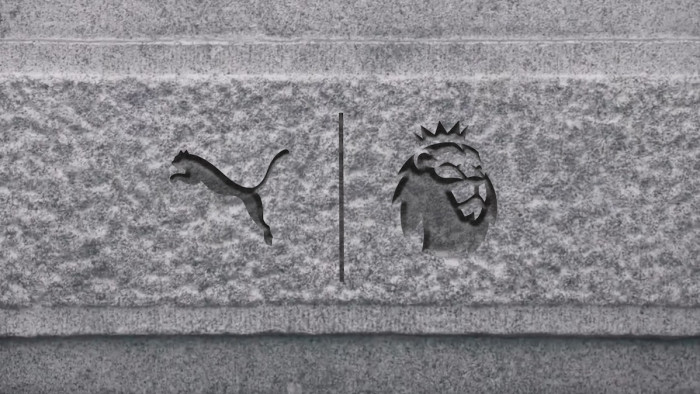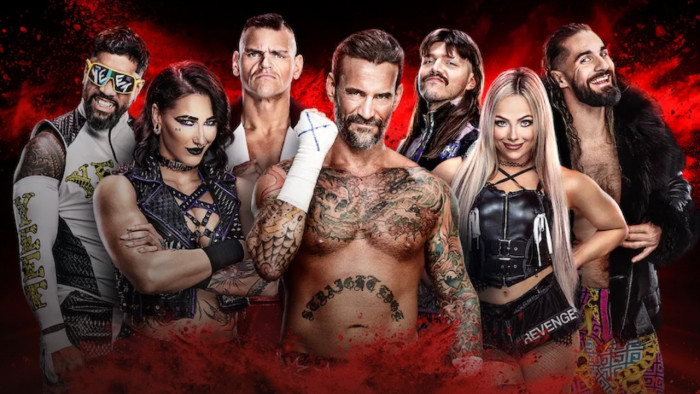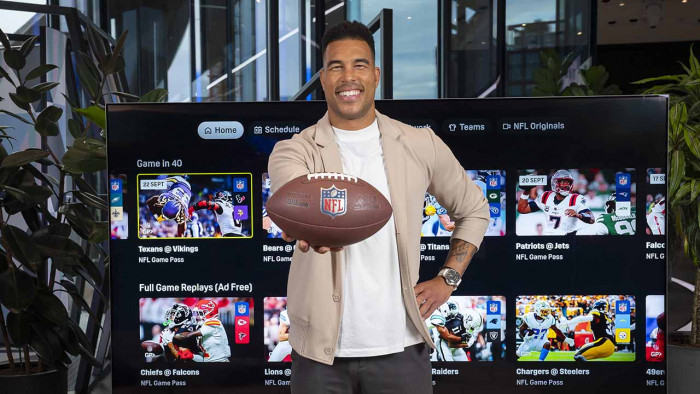Face to Face with Jay Ajayi: The British superstar beating America at their own game
Getting cosy with Jay Ajayi, an unstoppable, incomparable British sports titan


Jay Ajayi is a tough guy. That’s not up for discussion. Never has been. Standing 6ft tall and tipping the scales at 223lb (101kg), neck-to-knuckle tattoos snaking down both arms, lower teeth clad in diamond-edged gold grills, he makes an intimidating first impression. He looks as though he could muster enough power from a standing start to reduce me to a mangled heap of human mush with a barge of his shoulder.
I say he ‘looks as though’ he could do that – Jay Ajayi could do that. Does do that, in fact. Quite regularly. That’s because this British-born 25-year-old is one of the biggest stars in the most hard-hitting, high-impact and straight-up brutal sport in the world as a Super Bowl-winning running back for the Philadelphia Eagles in the NFL.
He is, as I say, tough. Which is why it’s surprising that Ajayi, easily occupying two-thirds of the three-seater sofa we’re sharing in the corner of an east London photo studio, is talking about the importance of emotional support networks.
“Obviously [as a man] you never want to show weakness,” he says, in a curiously blended accent of his native Hackney and adoptive Texas. “We want to be that guy who looks as though he can handle everything, but sh*t happens. And I’ve been fortunate enough to have a great support system: good friends, brothers that I can lean on if I’m ever going through something [difficult]… As an American football player – just as a man in general – having that support system to lean on if you’re ever in need [is important].”
Maybe, though, it shouldn’t come as a surprise to hear Ajayi talk about this subject, and in these terms, because in 2018, toughness means so much more than muscle.

As a running back – initially for the Miami Dolphins before being traded to the Philadelphia Eagles last season – Ajayi’s primary role is to be handed the ball by his quarterback and run full-pelt towards the human behemoths of the opposing team’s defensive line. To witness it is to see the personification of what happens when an irresistible force meets an immovable object. The answer: whichever one represents Jay Ajayi wins.
Ajayi is good at American football. Exceptionally good; Super Bowl-winning good. So good that objectively, in terms of global recognition and plaudits won, he is one of the most successful British athletes competing today, on a par with Anthony Joshua, Andy Murray and Mo Farah. When he turns on the afterburners, he is unstoppable, hurtling into – and through – anyone standing in his way (hence his nickname: the Jay Train). Yet right now, sinking back into the sofa, speaking in hushed tones and telling people to “have a blessed day” as they leave the studio, he comes across less like a warrior and more like an enormous teddy bear.
“Yes, we are athletes; that’s the career path we’ve chosen. But that’s not all we are.”
So how does he do it? How can someone be an aggressive battering ram on the field, and a giant softie off it? “It’s a switch, for me,” he explains. “The Jay Train, that’s my persona, my alter ego, on the field. It’s my ultra-competitive mode. Right now I’m calm, I’m chill. But when it’s time to compete, I flip the switch. I’m trying to break tackles, run through people, do whatever is necessary to help my team win. Sh*t-talk comes out, I’m real angry,” his eyes narrow and his jaw tightens. It’s enough to make you squirm in your seat.
His face relaxes. “But when I come off the field, I switch that off and I come back to being Jay Ajayi the person. The creative guy, soft-spoken, loves to laugh – all those things.”
Others in his sport haven’t always found it quite so easy to switch off. In 2014, celebrated running back Ray Rice was arrested after knocking out his fiancée and dragging her from a lift by her hair (the incident was caught on CCTV). That same year, another superstar running back was indicted after hitting his four-year-old son with a tree branch. And more than a decade on, the shadow of Atlanta quarterback Michael Vick’s sadistic dog-fighting ring still looms large.
These are just three of the most prominent examples of a current of toxic masculinity and unrefined aggression that can flow through sports, such as American football, that are built on bellicose foundations. Even the mid-play cries from the crowd resemble those of a boxing match. On the field, it is war.
Which makes it all the more remarkable that Ajayi is so serene away from it – though he does think that more and more players within the NFL share his sporting split personality.
“I mean, obviously you’ve got guys that have the same personality on and off the field. But you don’t want to be in that mode all the time. And it’s good, in my opinion, to see guys starting to show that we’re more than just athletes. We have a voice. We have other passions, whether it’s giving back to the community or chasing our other dreams – be that fashion, music, business, whatever,” says Ajayi, who has his own clothing brand, Yurp. “Yes, we are athletes; that’s the career path we’ve chosen. But that’s not all we are.”

Ajayi should know. In the Philadelphia locker room – dubbed the ‘wokest’ in the NFL – he is surrounded by some of the strongest characters with the most impressive extracurricular interests in the league.
Men such as defensive end Chris Long, who donated his entire base salary for 2017 – worth £788k – to fund educational charities in the three cities he has played for teams in. And men such as Malcolm Jenkins, Torrey Smith and Rodney McLeod, who have joined Long in working with lawmakers on criminal justice reform.
Meanwhile, such was the concern that the Eagles would boycott the traditional post-Super Bowl reception at the White House that Trump’s team cancelled the event entirely.
“Those are the things that we’ve got in the Eagles,” says Ajayi, who believes that the team’s highest profile players have created an atmosphere that allows racial equality to be as valid a talking point as match-day strategy.
“It’s a crazy environment. Our leadership made it very easy for us, in our locker room, to be open, and to understand that people are affected by things that go on outside of what’s happening in our building. Even though football is our lives, it lets you remember that there’s a bigger picture, that you are a human being. And as a human, if you see something wrong – you see these videos of the police, or injustices – and you don’t have a feeling towards it, in my opinion, that’s wrong. If there are injustices in our society, we have men in our locker room who are willing to do things to create change.”
So where does he stand on the as-yet unresolved Colin Kaepernick saga?
“If there are injustices in our society, we have men in our locker room who are willing to create change”
It was August 2016 when Kaepernick, the then San Francisco 49ers quarterback, first refused to stand during the American national anthem in protest against the social injustices Ajayi has been referring to. In the following two years, the wave of players taking a knee during the anthem gained momentum, dominating domestic discourse from Wyoming to the White House.
Kaepernick opted out of his contract over the controversy, and 49ers general manager John Lynch suggested that he would have been released had he not. The knee-taking that he instigated was outlawed, but players have continued anthem protests regardless at preseason games this month, and the NFL says its policy is on hold while discussions are held.
While Kaepernick has the support and admiration of a large proportion of players, the team owners want nothing to do with him. He remains jobless. Ajayi thinks that’s a travesty.
“I would love to see him back,” he says. “He’s a player who, when it comes down to the actual football, regardless of stats, is better than a lot of guys that are in the NFL right now. For that reason alone, there’s no reason why he shouldn’t be playing.” Not that he holds any hope of seeing it happen. “When you look at the NFL and see what’s been going on, it looks tough for him to return.”
How does Ajayi see his own role in all of this? This is a man who shrouded himself in the Union Jack following his Super Bowl victory. He is a proud Brit, passionate about his heritage, with an enormous ‘H’ for Hackney tattooed across the back of his mammoth right hand. Wouldn’t it be better for him to keep quiet during these discussions?
“Nah,” he hits back, decisively and dismissively. “I mean, the US is the environment that I’m in. It’s where I’ve lived most of my life. It’s where my younger siblings were born. So I definitely feel that I have a connection to it and it’s important to me. Let’s say in the future I’m living in the States and I have children, I don’t want them growing up in an environment that allows certain injustices to be deemed normal. So no, I won’t accept that, and I hope that things are going to change.”

To hear him talk, it’s clear that Ajayi has settled just fine in the open, progressive, activism-rich environment of the Philadelphia locker room. But don’t think for a second that his interest in American social politics means that he’s forgotten his roots.
Ajayi grew up in Hackney and then Essex, before his father’s work led his immediate family to relocate to Frisco, Texas, when Ajayi was seven. He’d always dreamed of sporting success – just not the kind he’d eventually come to attain. “My first love was football – you know, soccer,” he clarifies, almost apologetically. “As a British kid growing up in the US, I remember dreaming of being on the England national team and scoring a goal at Wembley, or playing for Arsenal.”
It would be some 15 years before Ajayi finally fulfilled his ambition to set foot on the hallowed Wembley turf. Only not in the way he’d dreamed in his youth, but as an American football player, during one of the unfailingly popular NFL London Series games. “It was a crazy, surreal feeling,” he says. “It was such a special moment for me. I can remember going on the pitch, seeing the fans in the stadium, seeing my team warm up, and I had a moment of clarity: ‘I’m playing American football. A British kid. Here, in Wembley. How did it ever turn out this way?’”
The answer – though Ajayi himself would put at least part of it down to God’s blessing – is a hell of a lot of discipline, determination and an acute sense of responsibility. “I realised that I was going to have to be the example early,” he explains. “I’m the eldest of five, so I’ve got four siblings looking [up] at me. Making sure that those guys can be proud [is my priority]. That helps me carry the weight of being a role model to kids from London, who maybe love American football and want to chase that dream, and see me as that example of, ‘Man, that’s where I want to be.’ So yeah, I see at it as a blessing to even be looked at like that. I just try to continue to push my career forward and be successful.” He looks down at his hands. “I gotta get another [Super Bowl] ring. I mean, two rings. Two on each hand! That’s the goal.”
Like all elite athletes, Ajayi is driven by winning. More touchdowns, more titles, more rings. That’s how he got to where he is today. But it’s good to know that in this era of political division and gross inequality, there are still men out there who don’t want success at all costs. Sportsmen who are warriors on the field of play and socially conscious crusaders off it. Men who are prepared to put their necks on the line for the win, and for what they believe in, too.
Jay’s Philadelphia Eagles begin their Super Bowl defence on 7 September on Sky Sports. Join the NFL Kickoff event on London’s Piccadilly on 8 September; nfluk.com
(Photography: David Clerihew)
Latest
Related Reviews and Shortlists









